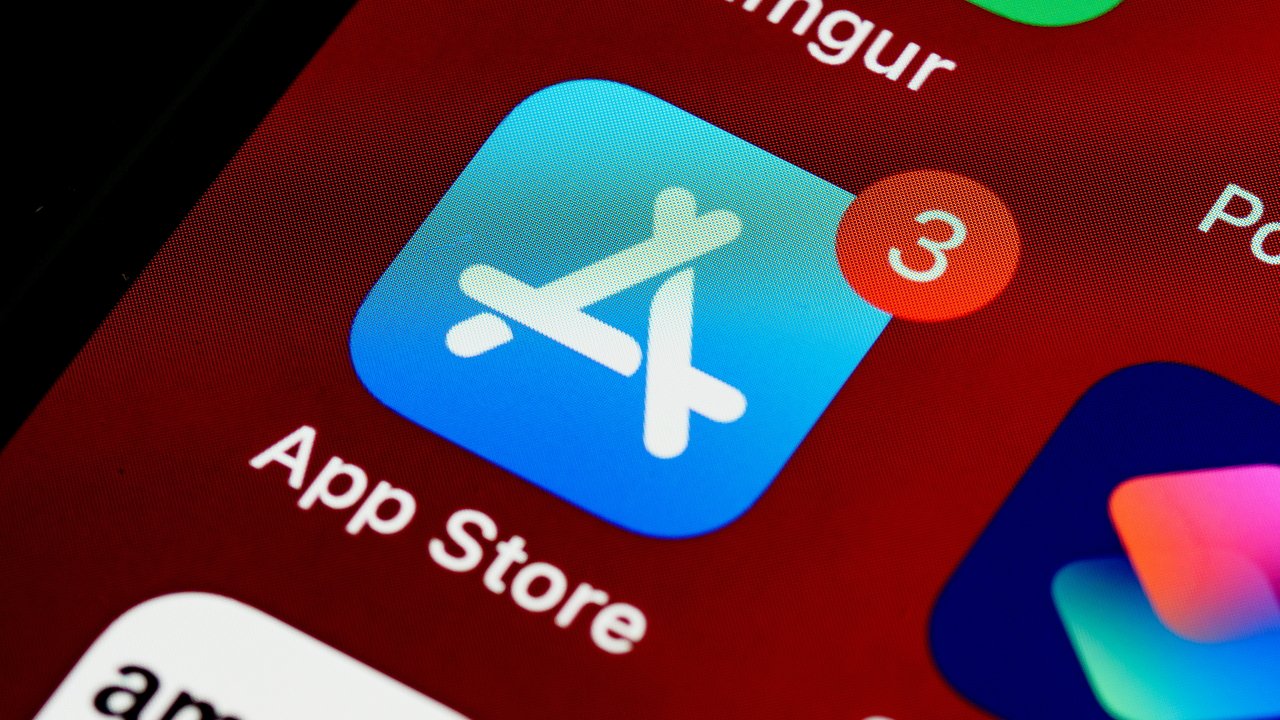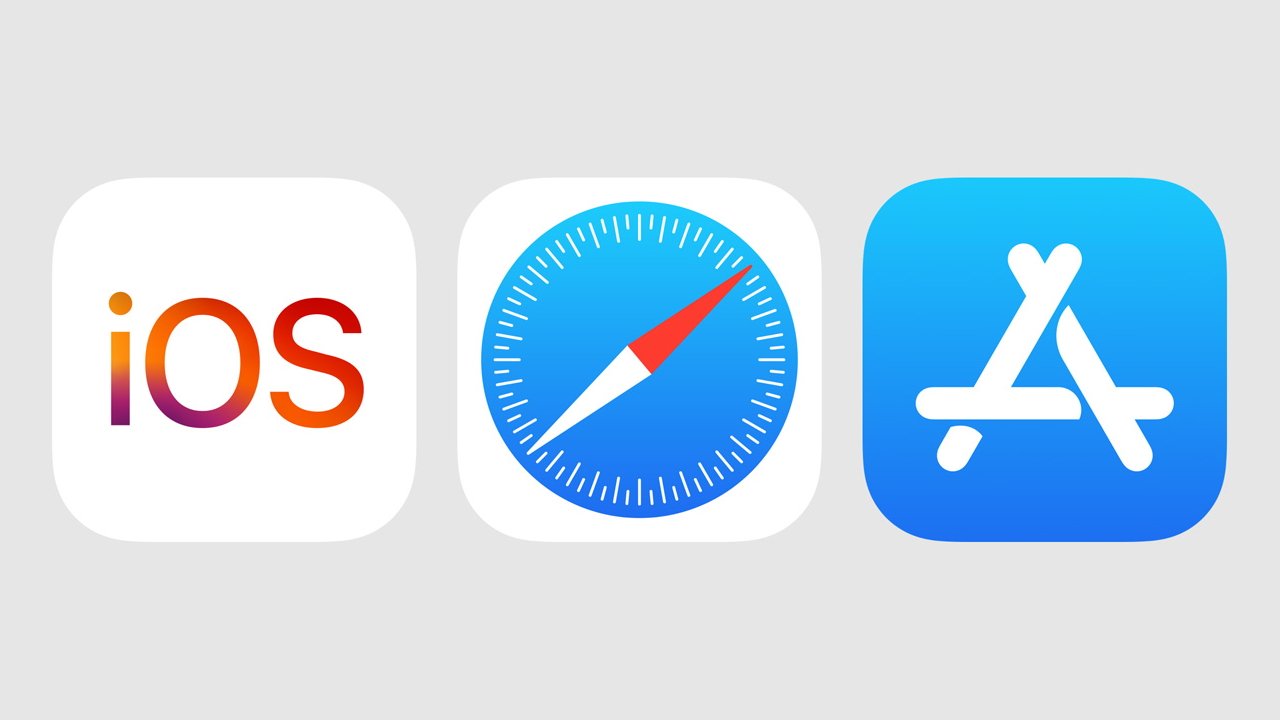Apple has new App Store rules, business terms, and sideloading conditions for EU developer...
Apple has announced iOS 17.4 that includes new options for an alternative App Store in the European Union, plus browsers will no longer have to use Apple's WebKit.

The App Store is changing in Europe
It was known that Apple would be working to comply with the EU's requirement that it add sideloading, or third-party app stores. Now Apple has revealed that from March 2024, and the release of iOS 17, it will be adding new fees, new options for developers, and is working to maintain privacy safeguards for users.
"The changes we're announcing today comply with the Digital Markets Act's requirements in the European Union," said Phil Schiller, Apple Fellow, "while helping to protect EU users from the unavoidable increased privacy and security threats this regulation brings."
"Our priority remains creating the best, most secure possible experience for our users in the EU and around the world," he continued. "Developers can now learn about the new tools and terms available for alternative app distribution and alternative payment processing, new capabilities for alternative browser engines and contactless payments, and more."
"Importantly," he said, "developers can choose to remain on the same business terms in place today if they prefer."
Apple is now going to notarize all iOS apps, regardless of where they are sold. It says this will mean protecting users from security issues, but will not also include the same App Store Review that Apple now provides.
Developers who want to offer their own marketplace will have to be approved by Apple. Approval requires that developers demonstrate human review of apps before distribution.
If a developer does offer their own marketplace, Apple says it will not be responsible for refunds. Plus Apple features such as Family Purchase Sharing and Ask to Buy, will not be available for apps downloaded outside of the App Store.
However, once a third-party app marketplace has been approved, the developer will be able to release any of its streaming games through it. Previously, each individual game had to be submitted separately, and be a standalone app on the App Store.
How the App Store will look to EU users
From the user's perspective, they will be asked for permission when a developer wants to add a marketplace. Users can also later revoke that permission.
Before a user installed an app from an alternative store, they will have to be shown an App Installation Sheet. This will display information from Apple's notarization system, such as the developer name, and screenshots.
Users will also get three payment options, depending on how developers choose to distribute their apps. They can buy apps via the App Store as now, they can buy via an alternative payment service, or they can click a link to go out to purchase on the developer's website.
They will also be able to set a third-party app marketplace as their default App Store. As part of this, iOS users will be able to select a third-party contactless payment app as their default.
To enable this, Apple is providing developers with access to NFC technology -- without opening up Apple Pay or Wallet.
Apple is also expanding user choice regarding browsers. At present, Safari can be swapped for an alternative via System Settings, but all iOS browsers have had to use Apple's WebKit engine.
Now developers can use alternatives. And the first time a user opens Safari after installing iOS 17.4, they will be prompted to select a default from a list of popular browsers.

Apple is updating iOS, Safari, and the App Store in the EU
New fees for EU developers that choose sideloading
For apps that continued to be sold via the App Store, Apple will reduce its standard commission from 30% to 17%. Apps that now get charged the reduced 15%, will instead be charged 10%.
All apps, including those sold outside of Apple's store will be charged a Core Technology Fee, which is 0.5 Euro per first install of an app annually. Apple will waive that fee for the first one million installs.
This first install is per user account per year, so a user can install an app on multiple devices, and also the developer can release multiple updates, without incurring a further charge. There will be no fee for educational institutions, non-profit or governmental organisations.
Developers who remain in the App Store as now, will also be able opt to pay Apple a further 3% to use the company's payment processing services.
Developers in the App Store will get over 50 new reports regarding engagement, commerce and so on. The data will be provided via a new analytics API.
Apple says that at present, 88% of active developers in the EU pay no fee. The some 9% pay the current 15% rate, and the rest are on the standard 30%.
Following the changes, Apple claims that 99% of all developers in the EU will pay the same or less in fees.
Apple says the changes will go live in the EU in March, but it has now released a developer beta of the required iOS 17.4.
Read on AppleInsider

Comments
- 88% of developers in the EU pay no fees (meaning they’re free Apps).
- 9% pay 15% (they’re smaller developers under $1 million in revenues).
- That leaves only 3% of all developers in the EU who pay the full 30%.
It looks like they put Facebook, Instagram, TikTok, Spotify, Netflix in a corner. All large, free apps. Either they continue with the current terms as they are. Or, they go with the new plan and have to start paying Apple $.50 per download
Hot Take: pretty creative
The 3% will now pay 17% instead of 30%.
MORE IMPORTANT: Apple will not review the content of Apps that come from 3rd part app stores (so the apps need only to comply with the 3rd party app store guideline and the law) so there is no single company that decides which app is "legal" or not!
The 3% will pay 17% instead of 30%, not 15%.
Importantly, from the Apple Press Release for this (Apple announces changes to iOS, Safari, and the App Store in the European Union - Apple):
"Notarization for iOS apps — a baseline review that applies to all apps, regardless of their distribution channel, focused on platform integrity and protecting users. Notarization involves a combination of automated checks and human review."
This might well be the final victory of Vestager as she is leaving EU. Apple should offer her a job. She's one fierce negotiator. Getting 27 countries behind this and making it happen. Well played. Also nice that Apple didn't repeat the USB C fiasco but moved on.
So most legitimate developers will likely end up acknowledging that there actually is (and always has been) significant value to going through Apple's App Store, and will simply just stay there. For those who still insist on going around it, they're not going to get the freebie free-for-all they had planned on. This strategy makes it harder and certainly less lucrative to implement the worst-case scenario that I feared would emerge, which is big companies with apps that a lot of people want circumventing the Apple App store specifically for the purpose of freely scraping user data, skirting quality and implementing other predatory practices that are disallowed by the App Store. The new side-loading requirements will make it much harder to do that, and the costs will diminish or eliminate the financial incentive to try.
This will ultimately help iPhone customers hold the line on the consumer choice they have now, which is to buy a phone that uses a closed system for its OS and App distribution specifically in order to maintain an expected standard for a high level of quality, privacy and security. Diminishing the financial incentives to circumvent the App Store will reduce the number of developers that will bother, and that will in turn make it less likely that large numbers of iPhone users will be willing or resigned to use alternative app stores to get Apps they no longer can get in the Apple App Store.
The true cost is being passed along, if you elect to bypass the App Store and do payments yourself what do you think the cost will be? If you elect go with a third party company to process the payments they will charge a large/good sum of money to do so. And if you do it in house it will also cost lots of money. Now that 70/30 split isn't looking so bad. If you are a small to medium sized company.
Oh and don't forget to hire someone (you maybe the third layer?) to watch that in house person. Good luck.
Like having Ford decide where you can go. No longer.
Why do the red states accept that a company from San Francisco place personal properties of their citizens in a padded cell?
Is it the "Make America Less Free" movement? Or "California knows what is best for us"?
Perhaps do an amendment "the right to install apps" or "freedom to use the apps you want"?
Not sure if we can fit the Statue of Liberty in the EU HQ, but we will give it a try :-D
- end of gloating.
The company caved in to the European Commission.
For the third time in less than a year.
Now we’re going to impose easier repairability